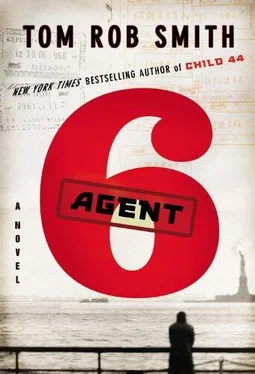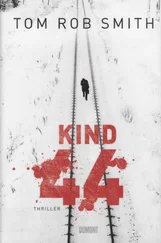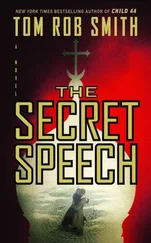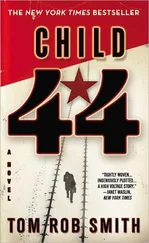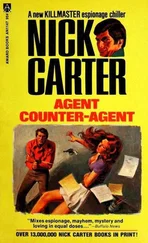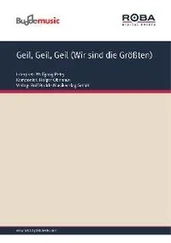Tom Smith - Agent 6
Здесь есть возможность читать онлайн «Tom Smith - Agent 6» весь текст электронной книги совершенно бесплатно (целиком полную версию без сокращений). В некоторых случаях можно слушать аудио, скачать через торрент в формате fb2 и присутствует краткое содержание. Жанр: Триллер, на английском языке. Описание произведения, (предисловие) а так же отзывы посетителей доступны на портале библиотеки ЛибКат.
- Название:Agent 6
- Автор:
- Жанр:
- Год:неизвестен
- ISBN:нет данных
- Рейтинг книги:4 / 5. Голосов: 1
-
Избранное:Добавить в избранное
- Отзывы:
-
Ваша оценка:
- 80
- 1
- 2
- 3
- 4
- 5
Agent 6: краткое содержание, описание и аннотация
Предлагаем к чтению аннотацию, описание, краткое содержание или предисловие (зависит от того, что написал сам автор книги «Agent 6»). Если вы не нашли необходимую информацию о книге — напишите в комментариях, мы постараемся отыскать её.
Agent 6 — читать онлайн бесплатно полную книгу (весь текст) целиком
Ниже представлен текст книги, разбитый по страницам. Система сохранения места последней прочитанной страницы, позволяет с удобством читать онлайн бесплатно книгу «Agent 6», без необходимости каждый раз заново искать на чём Вы остановились. Поставьте закладку, и сможете в любой момент перейти на страницу, на которой закончили чтение.
Интервал:
Закладка:
What better opponents to carve a brilliant career from? He entered this war from a position of supreme respect for his adversaries but also supreme confidence that he would become the first soldier that these mighty warriors would be defeated by, or, if they preferred, they could die fighting.
Coming to the end of his run, there were the first cracks of sunrise in the sky. Some of the shops were open: new fires in back rooms were burning tinders and twigs. The captain stopped dead in his tracks, drawing his gun and spinning around. The barrel of his gun came level with the forehead of a child directly behind him, a boy running in imitation to impress his all audience of friends. Seeing the gun they stopped laughing. The boy’s mouth hung open, terrified. The captain leaned down and gently tapped the barrel of his gun against the boy’s front teeth as though knocking on a door.
A scrawny wild dog scampered into the middle of the street, eyes glowing in the last moments of darkness, before running away. Captain Vashchenko’s day had begun.
Greater Province of Kabul City of Kabul Karta-i-Seh District Darulaman Boulevard
Next Day
Leo woke, peeling his face from the pillow. He shakily got to his feet, looking down at his outline imprinted in the mattress. His muscles ached. The lining of his stomach was tight and dry like old leather. A hacking cough seemed to take over his entire body. His clothes were the ones he’d been wearing yesterday when he’d walked into the lake. They’d dried stiff. He broke up the folds in his shirt, hobbling to the front door and slipping on a pair of dark green flip-flops. He descended the stairs, plastic soles slapping each step. Throwing open the front door, he revealed the street – from the darkness of his apartment to bright sunshine and city commotion, crossing from one world to another. A kharkar, a waste collector, rattled past, whipping a pitiful-looking mule dragging a wagon, wheels squeaking, overloaded with various kinds of city filth. Once the kharkar was out the way, Leo breathed deeply, smelling diesel fumes and spice. He wondered how many hours there were before it was night again. The sun broke through the smog, and squinting at the sky he guessed it was the afternoon. As a rule he didn’t smoke until it was dark.
Without getting changed, washing, or taking anything to eat, he stepped out, closed the door, leaving it unlocked since there was nothing worth stealing in the apartment. He shuffled down the alley to where his rusty bicycle stood waiting like a devoted mongrel. The bicycle was also unlocked, protected by its worthlessness. He threw a leg over the seat, balancing precariously, and pushed himself off from the wall, wobbling down the alley to the main street, mixing into the traffic of bicycles and mule-drawn wagons. Battered cars honked their horns, exhaust pipes spluttered in reply. And Leo tried not to fall off, rocking from side to side until he managed to find a fragile sense of balance among the chaos.
It was his seventh year as a Soviet adviser providing counsel to the Afghan Communist regime. His area of expertise was the workings of a secret police force, forced into a job no KGB officer wanted. The dangers were numerous. Several advisers had been savagely murdered, regional offices overrun; there had been public decapitations. He was performing the most hated job in a society where he was hated not only as an agent but also as an occupier. His task both now and before the Soviet military occupation was to create an Afghan political police force capable of protecting the fledgling Communist Party. Communism couldn’t be exported to Afghanistan without also exporting a political police force: the two went hand in hand, the party and the police, the ideology and the arrests. Having abandoned the profession in his homeland, he’d been forced to return to the job that Raisa had so despised. If he left his post, or failed in his duties, if he tried to run, he would be executed. Military discipline applied. Correctly suspecting the threat to his life might not scare him, it had been made clear that the repercussions to his daughters would be serious, their reputations would be tarnished and their prospects damaged, which tethered him to thejob. Locked in servitude to the State, his only choice was to carry out his responsibilities as they’d been outlined – well aware that his superiors did not expect him to survive. Yet he’d clung on, a ragged existence, and he was now the longest-serving Soviet adviser based in Afghanistan.
The Afghan Communist Party was a young creation, formed only a few years before he touched down in a rickety propeller aeroplane at Kabul airport in 1973. Grandly named the People’s Democratic Party of Afghanistan, it was led by a man called Nur Mohammad Taraki: an agent of the Soviet Union and codenamed NUR. Since the party wasn’t in power there was no way for Leo to establish anything as sophisticated as an official police force and initially his job was merely to keep the party from being destroyed by its enemies both foreign and domestic. It was as if he’d been sent back in time to Lenin’s early years: Communism existing as a minority party under mortal threat from all sides. It had been a wretched struggle to deflect numerous CIA plots and resolve internal rivalries. Few were more surprised than Leo when, in the April coup of 1978, the Communist Party seized power. Agent NUR became President of Afghanistan and Chairman of the Revolutionary Council. At that point Leo’s duties transformed. He could now advise on how to set up a secret-police force with uniforms and prisons, a force with one purpose – to maintain and preserve the Communists’ grip on power.
Trying to eschew the savagery and brutality that had characterized his early years as a secret-police officer, Leo proposed a force that was moderate and restrained. His proposals were dismissed as naive. The police force created by the new Communist regime followed a Stalinist model. It pursued vendettas and arrested indiscriminately. After years of caution and striving to achieve power the President became quickly drunk on terror. Decisions on whether citizens should live or die were presented to him daily, lists of names for him to tick or cross. Ironically, Leo was marginalized by the Party’s success. He was no longer needed. He wrote reports to the Kremlin updating them on the nature of the monster that he had helped create.
Unchecked by laws, the President desecrated mosques and arrested religious leaders. The anti-religious campaign was so misguided yet pursued so rigorously, Leo speculated that the concept of God must be irritating to any newly formed dictator, one fashioned with god-like powers. The President’s attempts to sculpt Afghanistan into a Communist model overnight were equally misjudged. With Decree Number 8, the President limited the amount of land held to six hectares. The rest was confiscated by the State. The response was uproar among the population. There was a deep cultural attachment between the population and its land. Families lived where they were born: their identity and location were tightly bound together. These sentiments far outweighed any grievances felt by the landless labourers working as tenant farmers. An insurgency took shape while the President tinkered with the things he could control, not his people’s thoughts or beliefs, but their flag, redesigned, removing the minbar, the pulpit in a mosque, as the emblem and replacing it with a five-point star. On the day the new flag was hoisted, the President ordered the colour red to be celebrated. Pigeons were smeared with red ink, residents of Kabul were ordered to apply red paint to the exterior of their apartments, students painted their chairs and desks red. Leo was sent a note asking him if he’d consider painting his bicycle red. He saved the letter, marking it as evidence and including it with the report he wrote that night to the Kremlin describing the catastrophic failure of their satellite regime and predicting the imminent collapse of the governmnt.
Читать дальшеИнтервал:
Закладка:
Похожие книги на «Agent 6»
Представляем Вашему вниманию похожие книги на «Agent 6» списком для выбора. Мы отобрали схожую по названию и смыслу литературу в надежде предоставить читателям больше вариантов отыскать новые, интересные, ещё непрочитанные произведения.
Обсуждение, отзывы о книге «Agent 6» и просто собственные мнения читателей. Оставьте ваши комментарии, напишите, что Вы думаете о произведении, его смысле или главных героях. Укажите что конкретно понравилось, а что нет, и почему Вы так считаете.
